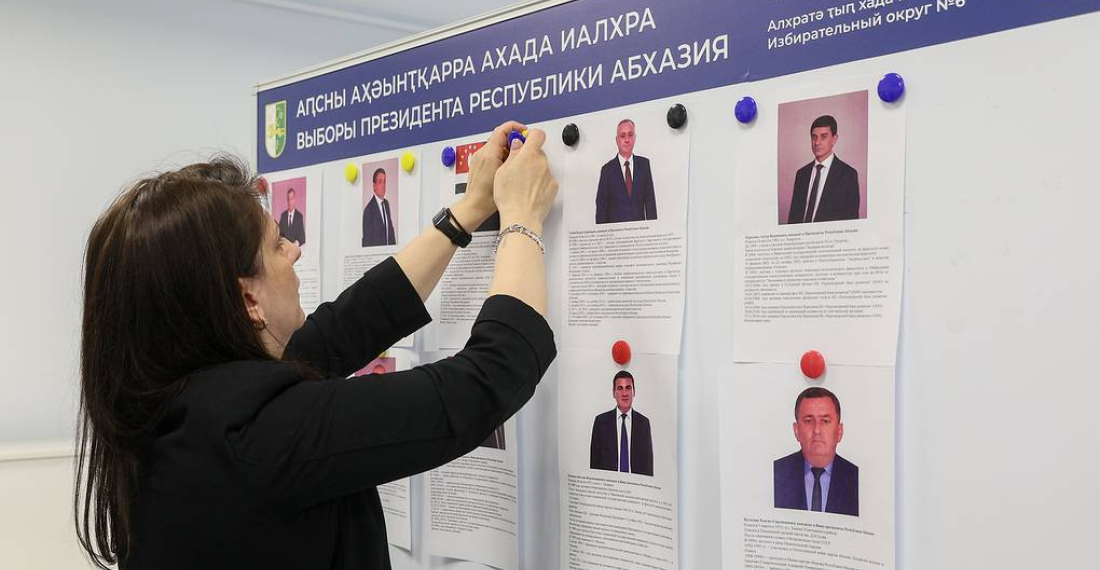A presidential election held this weekend in the breakaway Georgian region of Abkhazia produced no clear winner, setting up a second round between the top two candidates. According to Abkhazia's electoral commission acting President Badra Gunba took 46per cent of the vote, while opposition leader Adgur Ardzinba received almost 37 per cent. The Election Commission confirmed that Gunba, Moscow’s favourite candidate, failed to cross the threshold of 50 percent. The decisive second round featuring Gunba and Ardzinba is expected to be held by March 1. The EU reiterated its support for Georgia's territorial integrity and sovereignty in a statement saying it does not recognise the constitutional and legal framework in which the "so-called presidential elections in Abkhazia" took place.
Gunba, who previously served as vice president, took over as acting leader on November 19 after Aslan Bzhania resigned amid mass protests against an investment deal with Russia. Opponents feared the agreement threatened Abkhazia's already fragile status under Russian control. Ardzinba, a former de facto economy minister (2015–2020) and leader of the Abkhaz People's Movement, ran on a platform opposing the deal, though he still pledged close ties with Moscow. Russian pro-government media have attempted to frame him as "pro-Turkish."
Georgia's Foreign Ministry denounced the "so-called presidential elections in Russian-occupied Abkhazia," urging international condemnation of Moscow's ongoing violations. Abkhazia is not recognised as an independent entity by the international community with the exception of Russia, Nicaragua, Venezuela, Nauru, and Syria under Assad's ousted government.
Despite Russia's full-scale invasion of Ukraine, its military presence in Abkhazia remains strong, with reports suggesting plans for a naval base in Ochamchira. The election comes amid heightened tensions over Russian influence following last year's controversial investment deal, which Abkhazia's parliament ultimately rejected after Bzhania's departure. The agreement was part of a broader push by Moscow to cement economic control, including previously rejected proposals to allow Russians to buy real estate and recognize Russian court rulings in Abkhazia. Russian authorities have reportedly retaliated against opponents of these measures. Two vocal critics, lawmaker Kan Kvarchia and activist Levan Mikaa, were stripped of Russian citizenship.
Gunba met with Russian Foreign Minister Sergey Lavrov and Deputy Prime Minister Alexander Novak and to bolster his position, Moscow announced the resumption of financial aid, suspended since September, and increased electricity supplies amid severe shortages.
With the forthcoming second round looming, Moscow's influence appears to remain decisive. Gunba's failure to win outright appears to underscore growing unease in Abkhazia over Russian economic expansion. Whether the runoff delivers a different outcome remains to be seen.






